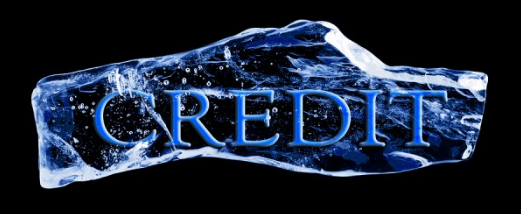
It’s been over a year since Equifax, one of the three largest credit reporting agencies in the U.S., revealed they’d been hacked. Because the hackers were able to access everything from Social Security numbers to payment histories to driver’s license numbers, the cyberattack put over 145 million Americans at risk of identity theft.1
What did you do to protect your data?
If you’re like most Americans, the answer is probably, “not much.” According to a survey by AARP, only 14% of adults chose to freeze their credit after the hack – even though freezing your credit is one of the best ways to prevent identity theft.2
One possible reason for this is that credit freezes have traditionally cost money. But now you can freeze your credit for free!
Thanks to the “Economic Growth, Regulatory Relief, and Consumer Protection Act,” a new law enacted in May, credit reporting bureaus like Equifax, TransUnion, and Experian must offer free credit freezes.3
SEC. 301. PROTECTING CONSUMERS’ CREDIT.
“(A) IN GENERAL.— Upon receiving a direct request from a consumer that a consumer reporting agency place a security freeze, and upon receiving proper identification from the consumer, the consumer reporting agency shall, free of charge, place the security freeze not later than…1 business day after receiving a request by telephone or electronic means…[or] 3 business days after a request that is by mail.”3
– Economic Growth, Regulatory Relief, and Consumer Protection Act
What is a credit freeze?
To calculate your credit, agencies like Equifax store important data like loan and payment history, birth dates, Social Security numbers, and more. Whenever you apply for a loan or approval on a credit card, banks and other lenders will request that information from a credit reporting agency.
When you apply for a credit freeze, the agency will essentially lock, or freeze, your file so that it can’t be accessed. That way, even if a lender requests your information, the agency will not release it until you “thaw” the freeze first. It’s an excellent way to keep your personal information from falling into the wrong hands. That’s because it “makes it harder for criminals to use stolen information to open fraudulent accounts, or borrow money, in your name.”4
In many cases, you can safely keep your credit frozen year-round unless you need to apply for a loan. Unfortunately, many people don’t take advantage of this. Some probably didn’t want to pay the money, while others find the process to arduous. And some, likely, don’t think identity theft will ever happen to them. That’s despite the fact that, in 2014 alone, 17.6 million Americans experienced identity theft!5
In our opinion, freezing your credit is definitely an option to consider.
A few things to know:
• To get the most protection, you should freeze your credit at all three of the major credit reporting agencies. Visit these websites to learn how:
TransUnion: transunion.com/credit-freeze
Experian: experian.com/freeze/center.html
Equifax: equifax.com/personal/credit-report-services
• The new law also enables parents to freeze their children’s credit for free if they are under age 16. While a child’s identity is usually not as vulnerable as an adult’s, it still should be protected, and it’s a terrific way to teach children about the dangers of identity theft!
• While a credit freeze is a valuable weapon in the fight against identity theft, it won’t protect you from everything. That’s why you should check your credit report regularly. (You can still request a credit report even if your credit is frozen.)
• Freezing your credit will not affect your credit score.
To learn more, visit the Federal Trade Commission’s website at https://www.consumer.ftc.gov/articles/0497-credit-freeze-faqs.
Identity theft is one of the biggest threats to reaching your financial goals. Take steps to protect your identity as soon as possible. Please let me know if you have any questions – and be sure to visit the links listed above to learn more!
1 Stacy Cowley, “2.5 Million More People Potentially Exposed in Equifax Breach”, The New York Times, October 2, 2017. https://www.nytimes.com/2017/10/02/business/equifax-breach.html?module=inline
2 “Up for Grabs: Taking Charge of Your Digital Identity,” AARP National Survey, August 2018. https://www.aarp.org/content/dam/aarp/research/surveys_statistics/econ/2018/taking-charge-of-your-digital-identitynational.doi.10.26419-2Fres.00228.000.pdf
3 “Text of the Economic Growth, Regulatory Relief, and Consumer Protection Act,” https://www.congress.gov/bill/115thcongress/senate-bill/2155/text
4 Ann Carrns, “Freezing Credit Will Now Be Free,” The New York Times, September 14, 2018. https://www.nytimes.com/2018/09/14/your-money/credit-freeze-free.html
5 “17.6 million U.S. residents experienced identity theft in 2014,” Bureau of Justice Statistics, https://www.bjs.gov/content/pub/press/vit14pr.cfm